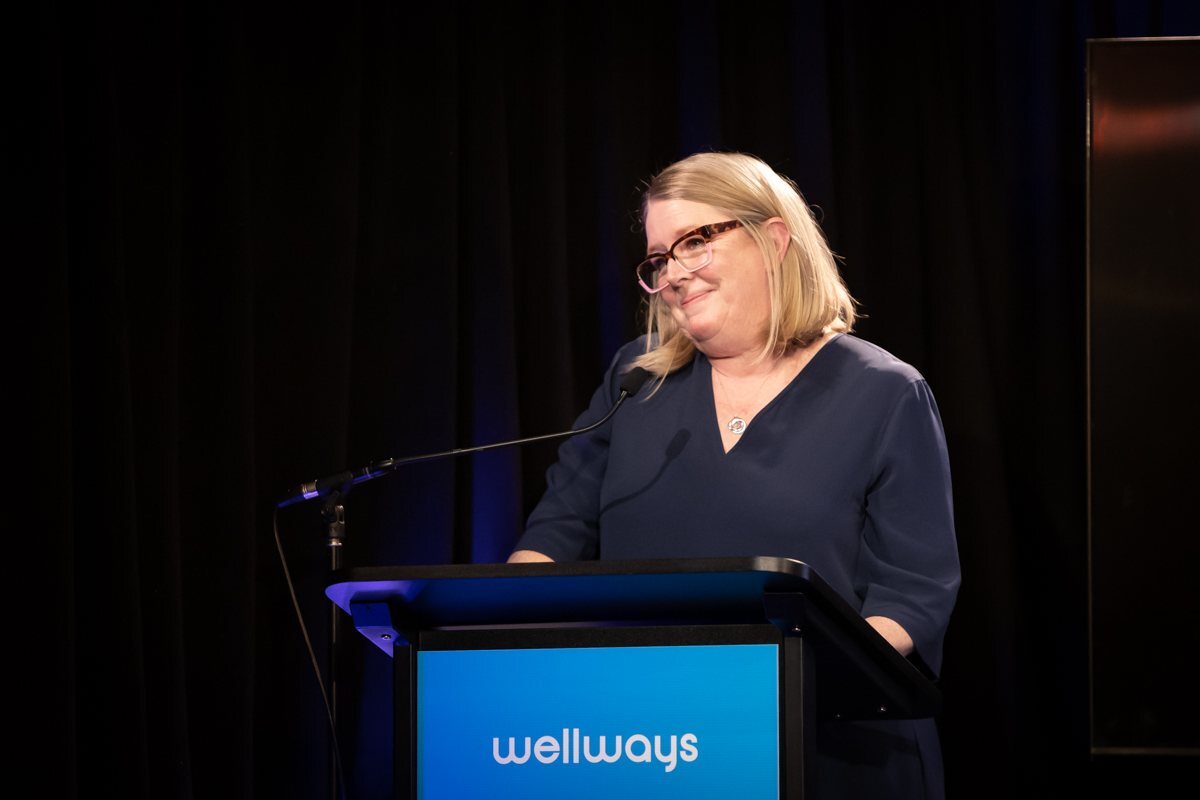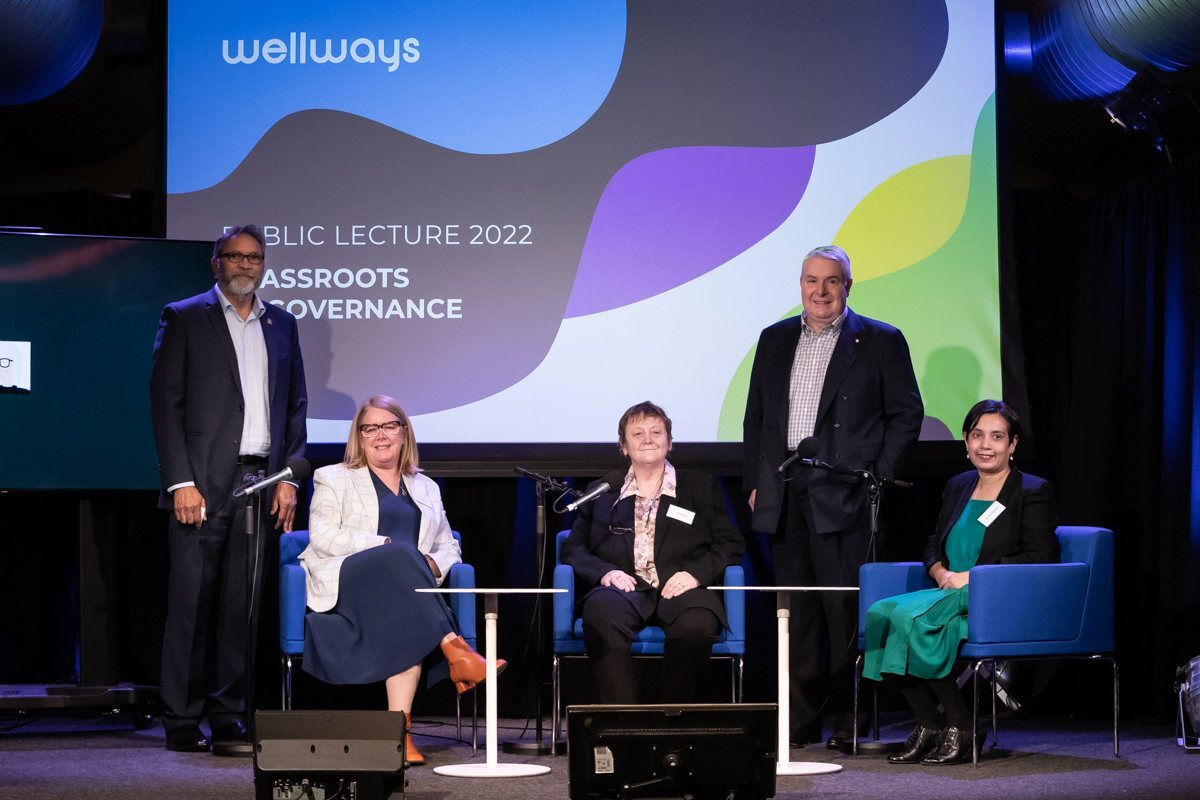Creating very clear roles and ensuring people with a lived experience of mental health issues work with and are managed by others with a lived experience are required for lived experience to be genuinely included in decision-making across the mental health sector.
That was one of the key messages from Systemic Mental Health System Advocate Debbie Hamilton when she gave the 2022 Wellways Public Lecture at Melbourne’s Wheeler Centre in front of an audience of 107 and more than 250 online.
Debbie told the crowd that the most obvious problem she sees with lived experience leadership is power inequality.
“I sit on Boards where there is one of me and eight others. I sit on another committee, where there is one of me and there is thirty other people,” Ms Hamilton said.
She went on to say that tokenism is much less likely to occur when people with a lived experience have a task ‘that’s a real-world task, not just some pretty thing in an organisation’s name.
Another issue that Debbie identified is that people who sit on committees often get co-opted into the committee and say yes, rather than really standing their ground. She reiterated; this is why we really need to clearly clarify the role of lived experience leaders.
The theme of the lecture, ‘Grassroots to Governance; Mental health lived experience in leadership’ comes at a time when the mental health system in Victoria is currently undergoing transformational reform. For the first time, these reforms centre people with a lived experience of mental health challenges in the design and delivery of the new system.
A panel discussion featuring lived experience and governance experts then discussed what organisations and individuals in power must do in order to encourage participation in these historic changes.
During the panel discussion, Executive Director of Lived Experience for the Department of Health, Mary O’Hagan said we shouldn’t just create the positions for people with a lived experience, but we should ensure that people feel safe and effective while they are occupying those positions.
She also said this takes a lot of hard work and reflection from people in management positions and a lot of listening to the people with a lived experience.
“There’s two big inhibitors of transformation – one of them is lack of courage and the other is lack of imagination,” Ms O’Hagan said.
Proud Wilunyu and Wajuk man of the Yamatji and Nyoongar nations and Wellways Board Director, Rod Little said that fundamentally it’s about letting the guard down and taking away those walls of protection that say what you can and can’t do.
“When you invite an individual to participate or ask what they think, they feel valued, they feel like they have a place in the world to do what needs to be done and they can contribute,” Mr Little said.
Erandathie Jayakody who has led the development of VMIAC’s “Consumers Leading in Governance” pilot program said it is the responsibility of Boards and the entire mental health sector to understand what is meant by lived experience and lived experience knowledge.
“(It’s about) making people on Boards and people in the system realise, this is a collective responsibility because otherwise it is often on the person with the lived experience to educate the rest of the team, but we can’t continue to do that anymore,” Ms Jayokody said.

Wellways CEO Laura Collister urged people across the sector to act and encouraged people with a lived experience to participate.
“This was a thought-provoking evening that allowed us to explore how we can ensure the lived experience voice is genuinely included in decision-making across the mental health sector.
“We know consumers are best placed to tell us how the system should work to best support recovery. To do this, we must have lived experience creating, solving, and making decisions at the highest levels of management.
As it stands, those of us in management positions must transform our practice to make this change effective,” Ms Collister said.
The Victorian Mental Illness Awareness Council’s (VMIAC) Consumers Leading in Governance’ Pilot Program was also launched at the Wellways Public Lecture. This specialist governance training for mental health consumers is the first of its kind in Australia – designed by consumers for consumers.
Sarah Jane Haywood, a participant in the Consumers Leading in Governance pilot program said that a program like this was much needed to help consumers feel more comfortable.
“The way that this program is run by consumers for consumers in an environment where you can question and grow….it was really helpful to make these subjects more approachable,” she said.
In closing the event Laura Collister also announced that due to a generous legacy gift from Frank Woodcock, the Wellways Public Lecture will be a regular annual event on the calendar for many years to come. Future public lectures will also be named the Woodcock Lecture.
